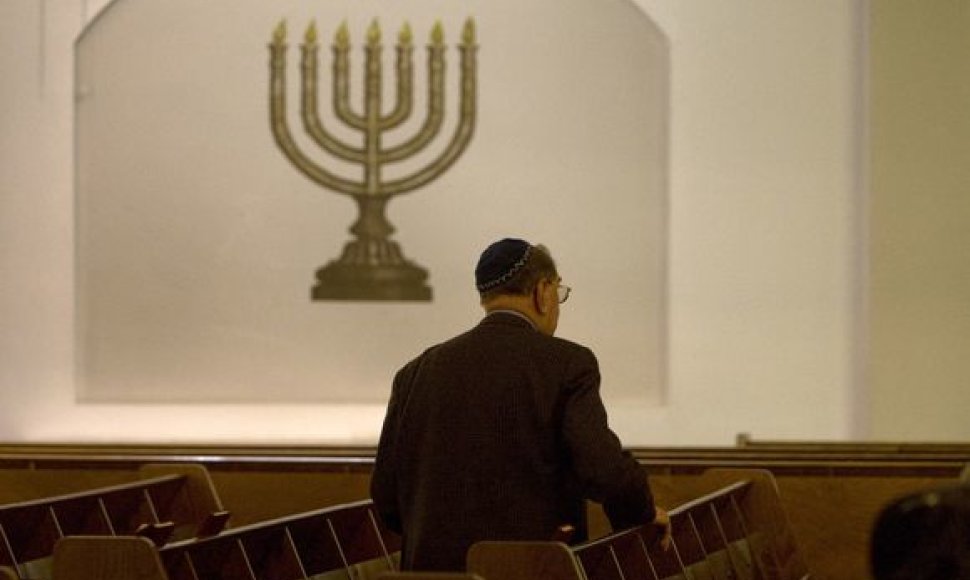"For the law to be implemented, various Jewish communities have to set up a fund, and the government has to confirm that the fund will receive the money. At today's meeting we discussed the issue and I believe that we'll make the decision on Wednesday to start implementing the law," Kubilius told reporters.
According to the prime minister, several Jewish organizations object to the proposed procedure, as they did during the adoption of the law. Kubilius said, however, that no new arguments had been received, and the major organizations were in favor of the law.
"As far as we know from the government documents, the same communities have the same arguments and still object to the implementation of the law. There are no new arguments, therefore, following the discussion of the whole preparation for the implementation of the law, we are ready to make the decision on Wednesday," the Lithuanian prime minister said.
"It's an act of good will on the part of the State of Lithuania, taking into account all historic circumstances. Major international Jewish organizations have also rated the law favorably," Kubilius told journalists.
The Good Will Compensation Fund was set up last year, but the government has to officially authorize it to distribute the money.
According to the fund statute, the money will be used to fund Jewish education, religious, scientific, cultural, health and other activities bringing benefit to the public. The fund will also support Jewish people who lived in Lithuania during World War II and were victims of totalitarian regimes during occupation.
The board of the fund will consist of 12 people representing Lithuanian Jewish communities.
Last year, the Lithuanian parliament adopted the Law on Good Will Compensation for the Immovable Property of Jewish Religious Communities. According to the law, 128 million litas (EUR 36.5 million) will have to be transferred to the fund over a decade. 3 million litas are allocated for the purpose in this year's budget.
"There are 3 million litas allocated for a specific group of people – Holocaust victims. We hope these people will get the money," Prime Minister's Chancellor Deividas Matulionis told reporters.
He said the government decided on Monday to ask for clarification of principles according to which the money would be distributed.
Commenting on objections by orthodox Jews and Kaunas Jewish Community, Matulionis said that now all responsibility lies with the uniting organization – the Jewish Community of Lithuania.
"There are various Jewish organizations but there's one uniting Jewish Community of Lithuania which is identified in the law. We therefore asked them to set up a fund and include representatives of other Jewish organizations into the board," the chancellor said.
"If somebody is not included, it's not our problem. We cannot be responsible for the Jewish Community of Lithuania which had drafted the fund's statute. Yes, Kaunas Jewish Community and Orthodox Jews are not satisfied. Discussions on the statute itself took half a year. It includes provisions that are rather clear. If a Jewish organization wants to join the board, it can make an application and it will be evaluated according to certain criteria. Depending on whether it complies or not, the organization can be accepted or not. It's important to prevent possible cases when some impostors try to enter the board to distribute the money," Matulionis said.
The compensation ammounts to around 30 percent of the value of property that was owned by Jewish communities but were nationalized or otherwise expropriated by Nazi and Soviet regimes.
More than 90 percent of Lithuania's pre-war Jewish community of about 200,000 were annihilated by the Nazis and their local collaborators during World War II. Around 5,000 Jewish people currently live in Lithuania, according to the Jewish community.












